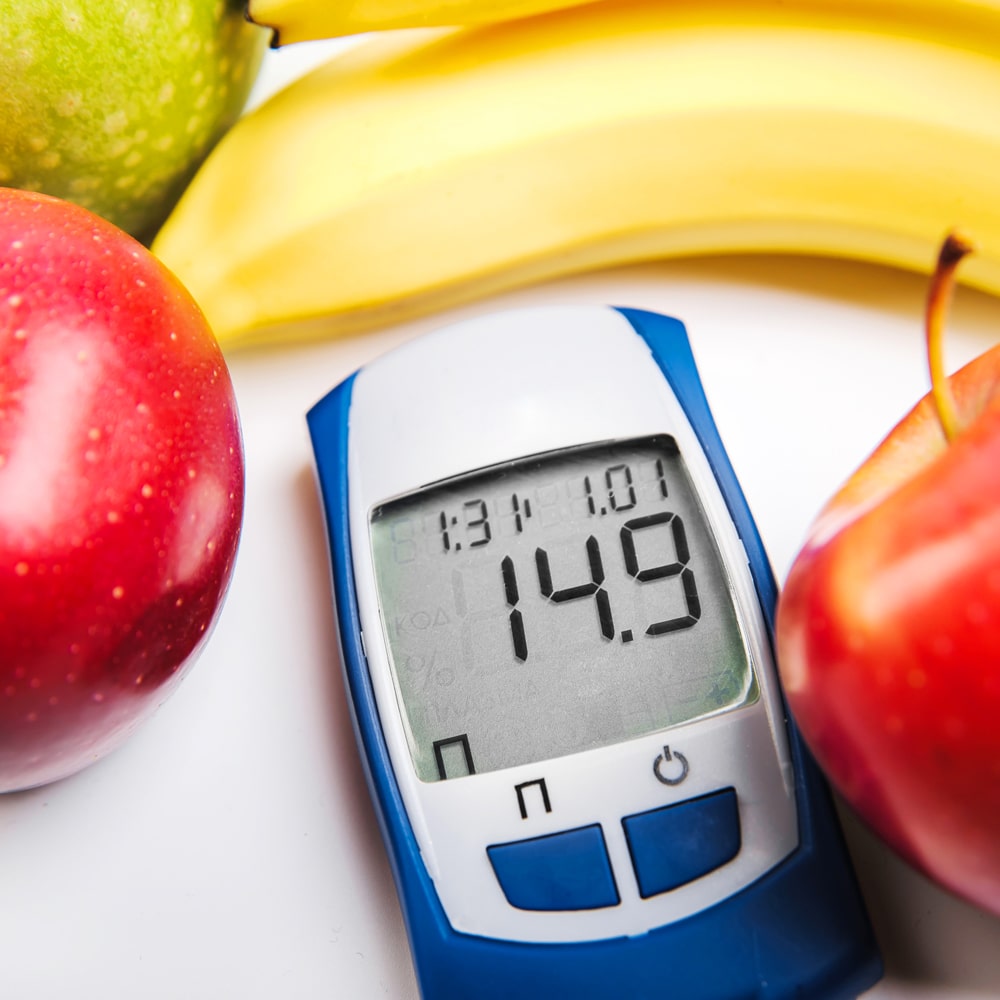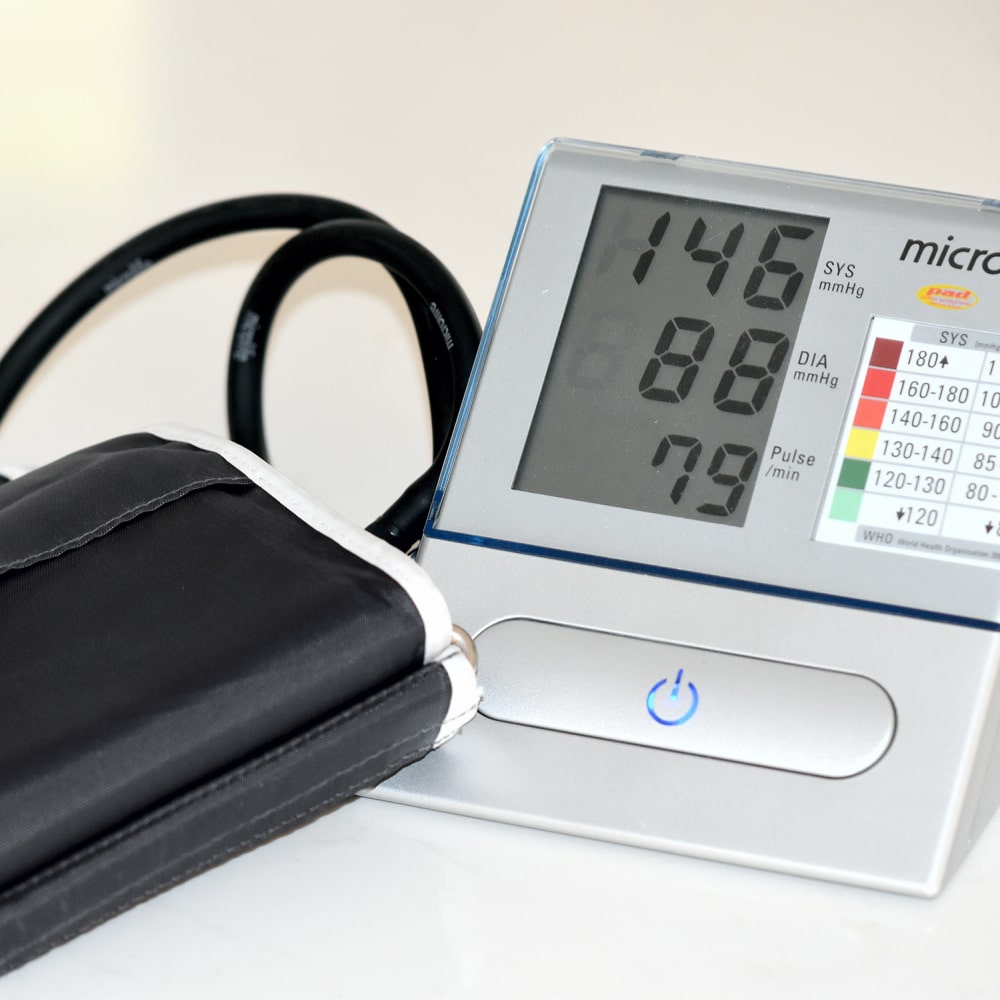
Blood sugar-ABC
What exactly is blood sugar (glucose)?
Glucose is a so-called simple sugar. It is not linked to other sugar molecules. For this reason, glucose is not broken down by digestive enzymes and passes more quickly through the intestinal wall into the blood. Glucose is an important source of energy, especially for the brain and nerve cells. The hormone insulin, which is produced in the pancreas, is responsible for getting the glucose into the cells.
Exceptions to this are the nerve cells and red blood cells. They can absorb glucose independently of insulin.

Blood glucose monitoring and nutrition.

Regularly check cardiovascular health if you have diabetes.
Determining the glucose level (blood sugar)
If diabetes mellitus is suspected, the glucose level in the blood should be checked immediately. Symptoms that indicate type 1 diabetes are, for example, frequent urination, weight loss, feeling listless, severe thirst as well as fatigue. Type 1 diabetes usually develops within a few days to weeks.
The symptoms of type 2 diabetes are less characteristic. Because of the increased hereditary risk, it does no harm to check your blood sugar level regularly if you have or have had relatives with diabetes. If you have other risk factors such as high blood pressure, obesity or lipometabolic disorders, the same applies. Checking blood glucose levels also helps to detect gestational diabetes at an early stage.
What blood glucose levels are normal?
In fasting people (8 to 10 hours without food) without diabetes, the blood glucose level is less than 100 milligrams per decilitre (mg/dl) or less than 5.6 millimoles per litre (mmol/l). After food intake, the blood glucose level usually rises slightly, but not above 140 mg/dl (7.8 mmol/l).
If the blood glucose level rises above 126 mg/dl (7.0 mmol/l) when fasting or above 200 mg/dl (11.1 mmol/l) at any other time, diabetes mellitus is present. Even a fasting value between 100 and 125 mg/dl (5.6 to 6.9 mmol/l) indicates a pre-stage of type 2 diabetes. A reliable diagnosis can be made, for example, with an oral glucose tolerance test (OGTT).
